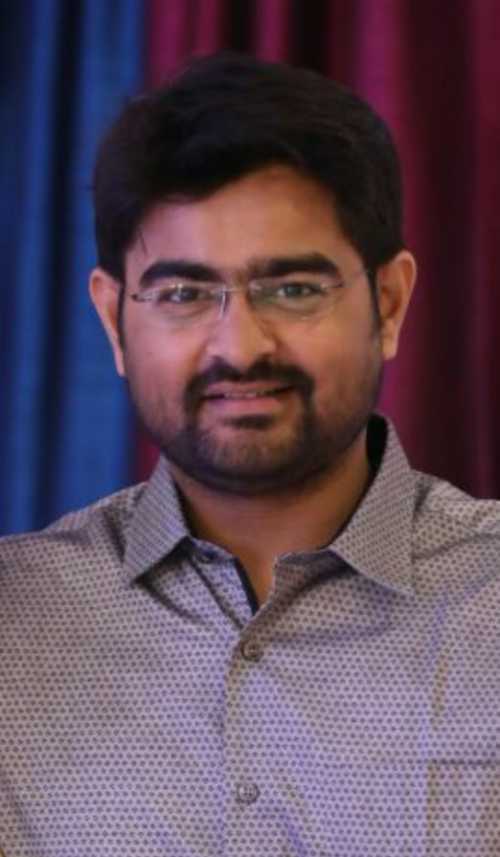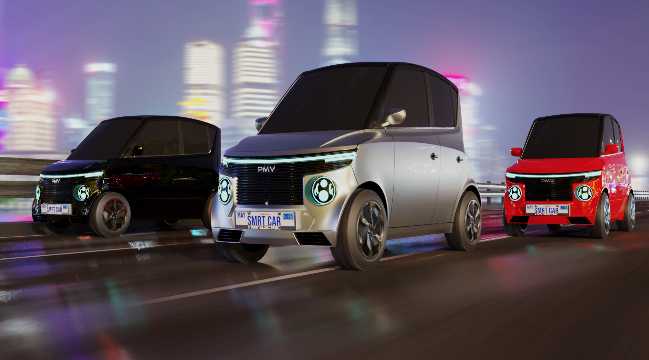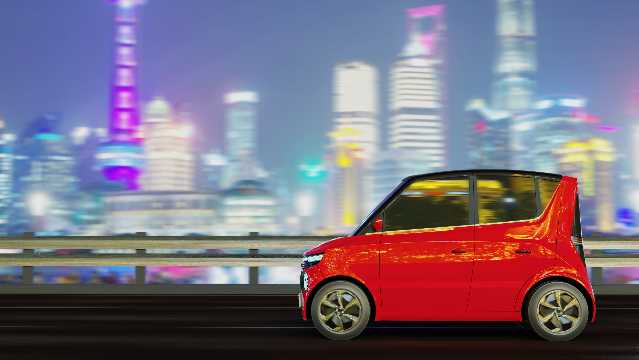Government policies are only a bonus? The EV industry must prepare itself as a hub for EV manufacturing, believes Kalpit Patel, Founder of Mumbai based PMV Electric. Kalpit and his young team are developing EaS-E2, a four-wheeler 2-seater microcar Electric Vehicle with a lower footprint for Urban Personal mobility. This personal electric car will use LFP batteries with inherently safer cells and its chemistry allows a greater number of cycles.

The electric vehicle segment in India has recently become more energetic more than ever. With big automakers announcing and launching their electric vehicles, the dynamic start-ups are not lagging behind either. With a dynamic perspective and a knack for innovation, the breed of entrepreneurs of new India is going some extra miles in their respective manners to enter the EV market. What marks the start-ups is their perennial commitment to quality and a passion to make a difference through their endeavours.
Mumbai based PMV Electric Private Limited is one such start-up that envisions the future with EVs as a mode of smart and eco-friendly personal mobility solution. The company’s electric microcar EaS-E2 is a four-wheeler 2-seater that packs quite some punches. PMV Electric’s founder Kalpit Patel an ideator talks to Machine Maker, who is all for practical solutions to ground level problems, and that comes across through the personal electric car that PMV Electric has been working on.
An engineer by profession Kalpit has been working for the last five odd years on the electric vehicle project. Kalpit says. “considering I did not belong to the industry, I had to learn a lot all by myself to help me understand the market dynamics.”
Tackling the City Traffic
The idea of an electric vehicle happened to Kalpit during his daily commute to work which took one odd hour for a distance of ten kilometres. “It was back in the June of 2016, I thought that there should ideally be a solution that will be at par with conventional vehicles in terms of comfort and convenience, but should have a smaller footprint.” Kalpit started to study and research extensively about the future product development and design, and its features and benefits.
“In July of 2017, we made a prototype, which indeed was a learning experience for us. Following this, in June 2018 the third prototype was developed which was similar to contemporary vehicles in terms of components.” The feedback it received was quite positive from some of the industry people and Kalpit thought the product’s commercial viability should be explored.

PMV Electric Private Limited was formed in November 2018. Kalpit says, “Generally when people get ideas, they tend to try to commercialize it from day one. The automotive industry being an overwhelming area to operate, we started considering it as a pet project.
A Micro Electric Car with Ease to Use
Since 2018 we have made two more prototypes for testing speed, range, stability and the feel of driving it. The final prototype mule has been tested for one thousand kilometres on various real road conditions.” The company believes that the customers do not buy just by looking at the size of the vehicle, but for the values, it can add to their experience. EaSE-2 comes with a high tensile tubular space frame, touching a top speed of 80 kmph (electronically limited to suit regulatory requirements). Available in 120/ 160/ 200 kilometres range in a single charge, the EV is powered by an advanced Lithium Iron Phosphate battery. The battery gets charged in less than 4 hours from any regular household outlet.
Going by the initial response over the last few weeks, when the imagery of the product was released, Kalpit feels that the consumer has liked the design. During his stints at CitiBank and Hindustan Zinc, for Kalpit the idea was always to be closer to the customer. As a solo ideator and developer Kalpit says, “Over the last few years, I have been fortunate to have the support of the industry people who helped me out in the development process. It was all due to their will to support something new and innovative.” Kalpit’s faculty for self-learning and a considerably decent understanding of design, mechanical and aesthetic aspects of developing an electric vehicle added further value to the project.
EaSE-2 has still some ground to cover to be market-ready and Kalpit is hoping to reach that stage in a few quarters. “Automotive design requires a large team and it is also capital intensive. Launching a product is not that easy. We were self-funded for the better part of the journey.” says Kalpit.
100% Make in India; Building Local Supply Chain

PMV Electric is working with multiple partners for assembly. Largely the company’s focus is on developing an indigenous product. “It could have been easier for us to import components and assemble them here. But that is not something we are not intending to do. It not about just assembling, but to add a certain value proposition for our customers.” The company is acknowledging that it is typically a niche product. Kalpit points out that instead, the product means something to a lot of people, we would have the product mean a lot to some people.
EaSE-2 will be priced moderately but the overall cost of ownership will be big merit for consumers. The battery used in the EV is a Lithium Iron Phosphate battery. Kalpit explains, “From the very beginning we have been using LFP packs for two clear reasons. One being the way the cells are constructed; they are inherently safer to use compared to Li-ion cells. The issues of thermal runaways are lesser. The second reason is in the number of cycles the LFP chemistry allows. The Li-ion cells typically have life cycles of fifteen hundred, but in LFP the chemistry allows more cycles. This is the reason now large manufacturers are also switching to LFP packs.”
As for charging, PMV Electric has two alternatives to offer, regular charging and fast charging. “But we do not encourage the fast charging as it deteriorates the life of the cell. Given that, the range of our EV will be enough for the everyday commute.” For the charging points, Kalpit is looking for strategic alliances with service providers who can help the company to leverage its existing networks.
The Indian manufacturing sector needs to get self-reliant in terms of component and part manufacturing. Kalpit believes that has actually started to happen. “A lot of companies and start-ups have started to build their motors and controllers etc. I think that is a positive thing. As we go forward the penetration of hardware start-ups will increase.” Initially, the marketing of EaSE-2 will not be done with the traditional dealership model, nevertheless, the company has received a good number of enquiries for the dealership.
Kalpit says, “Being closer to the user will actually work for us better to get the feedback. But we are keeping our options open. We are fortunate to receive some international enquiries also. But the Indian market is big enough to generate the considerable volume.” Kalpit also mentions the government policies can only be a bonus, they are not going to drive the demand, and rather it is the industry that has to come up with the products more in tune with the customer’s requirement.
The government must try to standardize the charging infrastructure. Also, the industry should place itself to make India the hub of the Electric Vehicle industry. Kalpit concludes by saying, “It is going to be a long journey and we have to build it slowly and steadily. And that is the right way and the best way to be able to reach the target.”
Visit PMV Electric at www.pmvelectric.com



